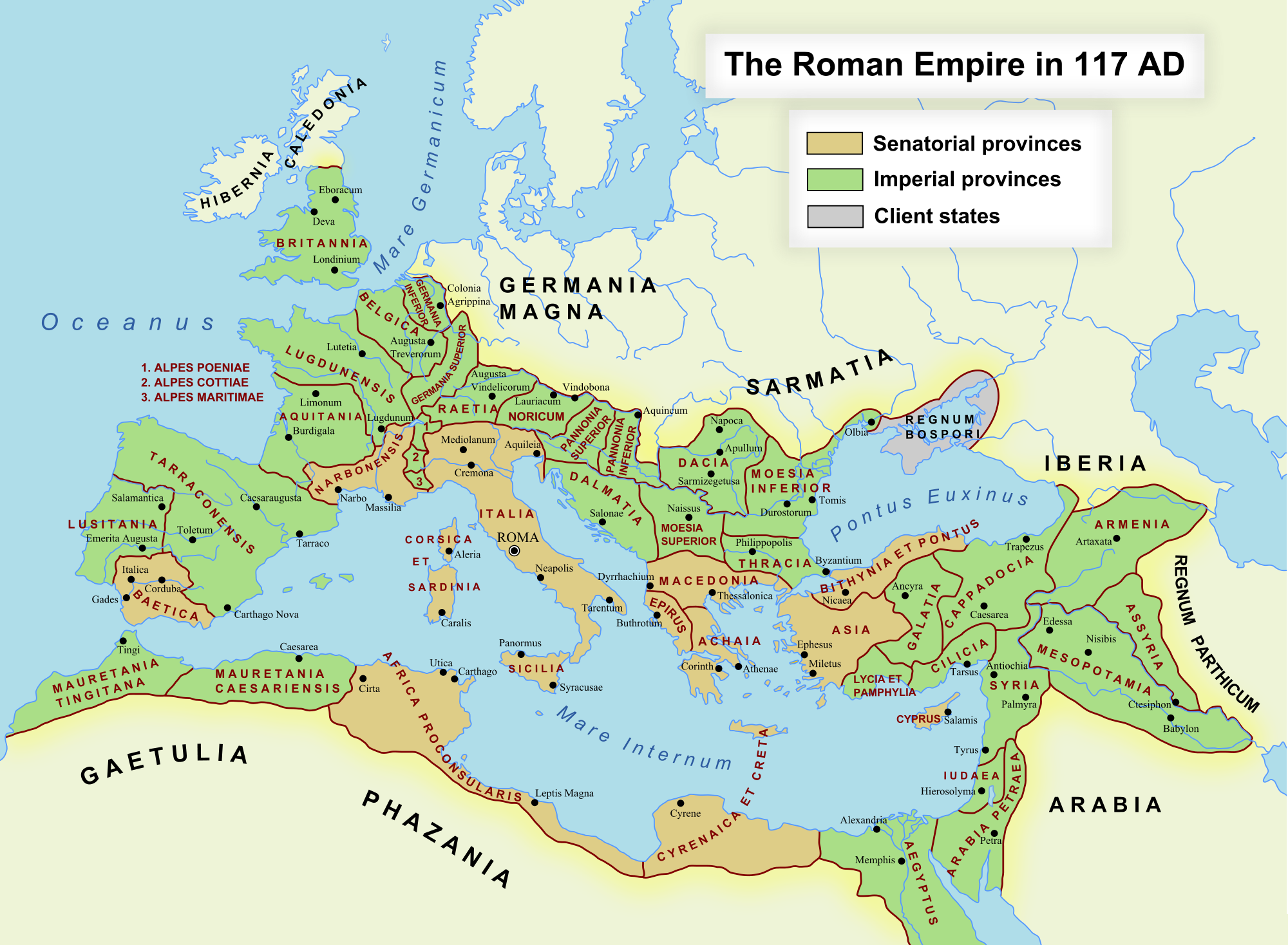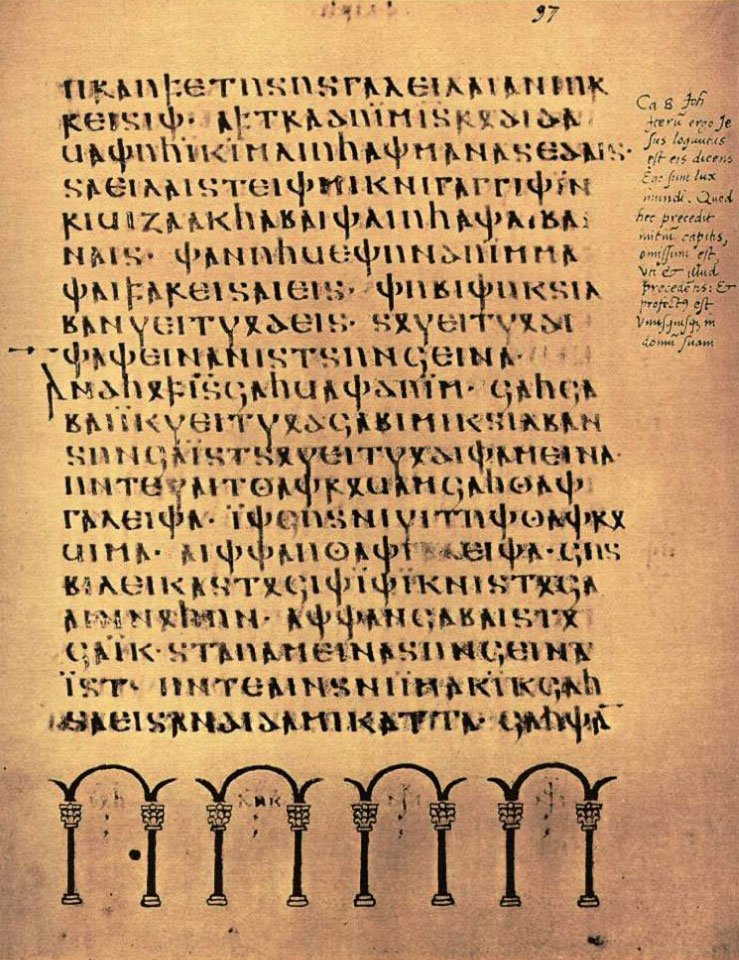Digital maps of the ancient world on twitter
Table of Contents
Table of Contents
The Roman Empire was one of the most influential civilizations in history, and one that profoundly influenced the development of the Western world. One of the most interesting aspects of the Roman Empire was the wide variety of languages spoken throughout its vast territory. The study of What Languages Were Spoken In The Roman Empire is a fascinating subject that sheds light on the diverse cultures that made up this ancient empire. In this article, we will explore the languages spoken in the Roman Empire and their historical significance.
Exploring the Languages of the Roman Empire
The Roman Empire was a melting pot of different cultures, and as such, a wide variety of languages were spoken throughout its territory. The most widely spoken language was Latin, which was used by the ruling classes and in official documents. However, other languages, such as Greek, Aramaic, and Hebrew were also spoken in different regions of the empire.
The diversity of languages spoken in the Roman Empire was a reflection of its vast territory, which spanned across three continents. At its height, the Roman Empire covered an area of more than five million square kilometers and had a population of about 60 million people. This vast territory encompassed numerous tribes, ethnic groups, and civilizations, each with its own language and cultural traditions.
The Significance of Language in the Roman Empire
The study of What Languages Were Spoken In The Roman Empire is crucial to understanding the empire’s political, social, and economic development. Language was an essential tool for communication, governance, and trade, and played a significant role in shaping the cultural identity of the different regions within the empire. For instance, the use of Latin as the official language of the empire helped facilitate communication between different regions and contributed to the development of a unified sense of Roman identity.
Main Points to Consider
The Roman Empire was a multicultural society, and as such, a variety of languages were spoken throughout its territory. Latin was the most widely spoken language, but other languages, such as Greek, Aramaic, and Hebrew, were also spoken by different groups. The diversity of languages in the Roman Empire played a significant role in shaping its cultural identity and contributed to the development of a sense of Roman unity.
The Importance of Latin in the Roman Empire
The key to understanding What Languages Were Spoken In The Roman Empire is to recognize the cultural significance of language in ancient societies. Latin was the most widely spoken language in the Roman Empire and was used in official documents, literature, and religious ceremonies. Its widespread use helped spread Roman culture and civilization throughout its vast territory. However, Latin was not the only language spoken in the Roman Empire, and many other languages played a significant role in shaping the cultural identity of different regions.
My personal experience with studying Latin has given me a deeper appreciation for the language’s historical significance. Learning Latin has allowed me to read ancient texts and connect with the intellectual traditions of the past. It has also helped me understand the language’s lasting influence on modern culture, including its impact on the development of English and other Romance languages.
The Role of Greek in the Roman Empire
Another important language in the Roman Empire was Greek, which was widely used in the eastern half of the empire. Greek was the language of commerce, culture, and education in this region and was used in daily life by many people. It was also the language of the New Testament and the early Christian Church, making it an essential language for religious and theological studies.
My experience with Greek has given me a deeper understanding of the language’s historical and cultural importance. Studying Greek has allowed me to read ancient texts and appreciate the language’s contribution to Western philosophy, literature, and culture. Additionally, learning Greek has given me a better understanding of the language’s influence on the development of modern languages, including English.
The Importance of Aramaic and Hebrew
Aramaic and Hebrew were also important languages in the Roman Empire, particularly in the Middle East. Aramaic was the lingua franca of the Near East and was used for trade, diplomacy, and communication among different cultures. Hebrew, on the other hand, was the language of the Jewish people and played a significant role in the development of Judaism and other Abrahamic religions.
Exploring the history and significance of Aramaic and Hebrew has given me a deeper appreciation for the enduring importance of these languages. Learning about their impact on culture, religion, and language has helped me understand the complex historical legacies of these ancient civilizations.
The Significance of Language in the Roman Empire
What Languages Were Spoken In The Roman Empire is a fascinating topic that sheds light on the complexity and diversity of this ancient civilization. The study of Roman languages helps us understand the cultural, political, and economic developments that shaped this empire and its legacy. From the widespread use of Latin to the importance of Greek, Aramaic, and Hebrew, each language played a crucial role in shaping the cultural identity of the different regions within the Roman Empire.
Question and Answer
Question 1: Which language was the most widely spoken in the Roman Empire?
Answer: Latin was the most widely spoken language in the Roman Empire and was used in official documents, literature, and religious ceremonies.
Question 2: Why was the study of Roman languages crucial to understanding the empire’s political, social, and economic development?
Answer: Language was an essential tool for communication, governance, and trade, and played a significant role in shaping the cultural identity of the different regions within the Roman Empire.
Question 3: What role did Greek play in the Roman Empire?
Answer: Greek was widely used in the eastern half of the Roman Empire and was the language of commerce, culture, and education in this region.
Question 4: Why were Aramaic and Hebrew important languages in the Roman Empire?
Answer: Aramaic was the lingua franca of the Near East and was used for trade, diplomacy, and communication among different cultures. Hebrew, on the other hand, was the language of the Jewish people and played a significant role in the development of Judaism and other Abrahamic religions.
Conclusion of What Languages Were Spoken In The Roman Empire
What Languages Were Spoken In The Roman Empire is a fascinating topic that sheds light on the cultural, political, and economic developments that shaped this ancient empire. From the widespread use of Latin to the importance of Greek, Aramaic, and Hebrew, each language played a crucial role in shaping the cultural identity of the different regions within the Roman Empire. Understanding this legacy is key to understanding the evolution of Western civilization and its lasting impact on modern culture.
Gallery
Greek Alphabet

Photo Credit by: bing.com / languages europe century 1st map roman empire language bc 500 ancient maps first greek bible european 500bc alphabet families rome
Languages Spoken In The Eastern Roman Empire 580 AD | Mapa Historico

Photo Credit by: bing.com / byzantine spoken ancient byzanz linguistic maps konstantinopel christianity mapmania mapporn basileia
Digital Maps Of The Ancient World On Twitter | Roman Empire Map, Roman

Photo Credit by: bing.com / roman empire ce 150 languages ancient language provincial map rome maps greece history european
Map Of Languages Spoken In Eastern Roman Empire C.1025 : MapPorn

Photo Credit by: bing.com / empire map roman languages eastern 1025 spoken comments mapporn
Mapping The Languages Of The Roman Empire – Peter Kirby

Photo Credit by: bing.com / trajan mapping reign





